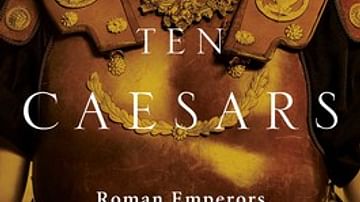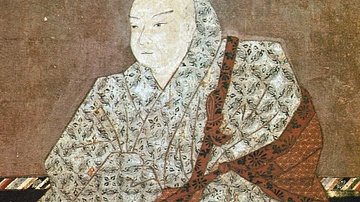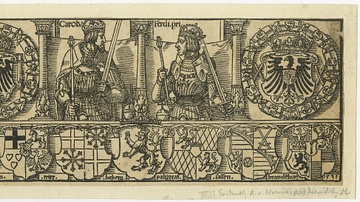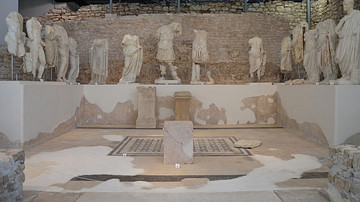Search
Search Results

Interview
Interview: Barry Strauss on Ten Caesars
Dr. Barry Strauss' Ten Caesars: Roman Emperors from Augustus to Constantine tells the epic story of the Roman Empire from its rise to its eastern reinvention, from Augustus, who founded the empire, to Constantine, who made it Christian and...

Article
Insei: Cloistered Government in Ancient Japan
Insei or 'cloistered government' describes the strategy of emperors during the late Heian Period (794-1185 CE) in ancient Japan where they abdicated in favour of a chosen heir yet still ruled in some capacity, typically after retiring to...

Video
Reconstruction of the Roman Emperors: Interview with Daniel Voshart
Working with busts, written descriptions, coins and any other available resource, Daniel has reconstructed the heads of the first 54 Roman Emperors from the Roman Empire. From Augustus Caesar to Marcus Aurelius, Maximinus Thrax and Caligula...

Image
Wheel of the Year
Painted Wheel of the Year from the Museum of Witchcraft, Boscastle.

Image
Four-Room House Model
Four-Room House (or Israelite Pillared House), Iron Age

Video
The Five Good Emperors of the Roman Empire
Did you know that the term Five Good Emperors is from the modern era? This video is all about five emperors of the Roman Empire that are collectively known as the good emperors. The first of the five, Nerva, reigned from 96 to 98 CE...

Image
Roman Emperors
Four busts of Roman emperors: Domitian (top left), Titus (top right), Nero (bottom left), Trajan (bottom right).

Image
Holy Roman Emperors Charles V & Ferdinand I
Illustration of the Holy Roman Emperor Charles V (r. 1519-1556 CE) and Ferdinand I. The illustration depicts the Habsburg brothers Charles V (left) sitting by the imperial coat of arms, while Ferdinand (right) is flanked by the Habsburg coat...

Video
Roman Emperors - Real Faces
Timelapse video of a history enthusiast recreating the real faces of roman emperors using several graphic design and video animation software. You can clearly see the shift in Roman portraiture, from the intelligent, handsome philosopher...

Definition
Roman Imperial Cult
The Roman imperial cult was the practice of venerating Roman emperors and their families as having divine attributes, honoring their contributions to the spread of Roman religion and culture. It was instituted by the first Roman emperor Augustus...